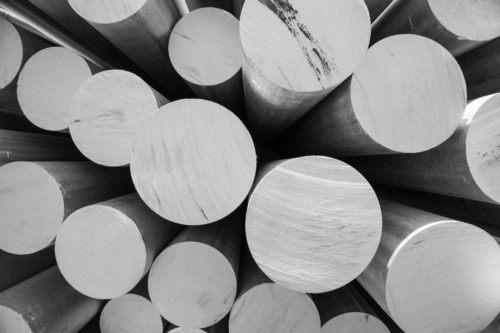Some Known Facts About Stahl Specialty Company.
Some Known Facts About Stahl Specialty Company.
Blog Article
Stahl Specialty Company Fundamentals Explained
Table of ContentsStahl Specialty Company for BeginnersThe Greatest Guide To Stahl Specialty CompanyThe Definitive Guide for Stahl Specialty CompanyThe Single Strategy To Use For Stahl Specialty CompanyStahl Specialty Company Things To Know Before You Get This
The refined difference depends on the chemical material. Chemical Comparison of Cast Aluminum Alloys Silicon advertises castability by lowering the alloy's melting temperature and enhancing fluidity during casting. It plays a vital duty in allowing elaborate molds to be loaded accurately. In addition, silicon contributes to the alloy's toughness and use resistance, making it important in applications where durability is essential, such as automobile parts and engine parts.It likewise boosts the machinability of the alloy, making it simpler to refine right into ended up products. In this method, iron adds to the overall workability of aluminum alloys.
Manganese adds to the stamina of light weight aluminum alloys and enhances workability. It is typically made use of in functioned aluminum items like sheets, extrusions, and accounts. The visibility of manganese help in the alloy's formability and resistance to breaking during construction processes. Magnesium is a lightweight component that provides strength and impact resistance to aluminum alloys.
It enables the manufacturing of lightweight elements with exceptional mechanical buildings. Zinc boosts the castability of light weight aluminum alloys and assists regulate the solidification procedure during casting. It enhances the alloy's toughness and solidity. It is typically located in applications where elaborate forms and great information are needed, such as attractive spreadings and certain automobile components.
Facts About Stahl Specialty Company Revealed
Because aluminum-silicon alloys have excellent spreading residential or commercial properties, high gas buildings, basic processes, and superb rust resistance, aluminum-silicon alloys are most commonly utilized in the die-casting industry in your home and abroad. At the same time, aluminum-silicon alloys are likewise reasonably early and extensively acknowledged alloys developed and utilized in die-casting. After continuous research study and improvement, many of the current global mainstream aluminum-silicon alloys have been finalized and are nothing more than A356, A360, A380, ADC12, B390, and A413.
The primary thermal conductivity, tensile toughness, return toughness, and elongation vary. Select suitable basic materials according to the performance of the target item generated. Amongst the above alloys, A356 has the greatest thermal conductivity, and A380 and ADC12 have the lowest. The tensile limitation is the contrary. A360 has the finest yield toughness and the highest elongation rate.

About Stahl Specialty Company
In accuracy spreading, 6063 is well-suited for applications where complex geometries and top quality surface area coatings are critical. Examples consist of telecommunication units, where the alloy's superior formability permits sleek and cosmetically pleasing designs while maintaining structural stability. In the Illumination Solutions industry, precision-cast 6063 components create elegant and efficient lighting fixtures that require intricate shapes and excellent thermal efficiency.
(https://my.omsystem.com/members/stahlspecialc)
The A360 displays remarkable elongation, making it excellent for facility and thin-walled parts. In precision casting applications, A360 is fit for markets such as Consumer Electronics, Telecommunication, and Power Devices.

In accuracy casting, aluminum 413 shines in the Consumer Electronics and Power Tools markets. It's frequently made use of to craft intricate elements like smart device housings, camera bodies, and power tool casings. Its precision is exceptional, with tight resistances approximately 0.01 mm, making certain remarkable item assembly. This alloy's exceptional deterioration resistance makes it an excellent option for exterior applications, guaranteeing durable, resilient items in the discussed sectors.
Stahl Specialty Company Fundamentals Explained
When you have made a decision that the light weight aluminum pass away casting process appropriates for your task, an important next step is choosing the most ideal alloy. The aluminum alloy you pick will considerably impact both the spreading procedure and the residential properties of the last item. As a result of this, you need to make your choice thoroughly and take an informed technique.
Figuring out the most suitable light weight aluminum alloy for your application will imply weighing a vast array of qualities. These comparative alloy characteristics adhere to the North American Die Casting Organization's guidelines, and we've separated them into 2 groups. Aluminum Castings. The very first category addresses alloy features that impact the production procedure. The 2nd covers features influencing the homes of the final product.
The alloy you choose for die casting straight affects a number of facets of the casting process, like exactly how easy the alloy is to work with and if it is vulnerable to casting defects. Hot fracturing, also referred to as solidification cracking, is a normal die spreading defect for light weight aluminum alloys that can cause interior or surface-level tears or fractures.
What Does Stahl Specialty Company Do?
Particular light weight aluminum alloys are a lot more at risk to warm fracturing than others, and your choice must consider this. Another common defect discovered in the die spreading of light weight aluminum is pass away soldering, which is when the cast stays with the die walls and makes ejection difficult. It can damage both the actors and the die, so you must search for alloys with high anti-soldering residential or commercial properties.
Corrosion resistance, which is currently a notable feature of light weight aluminum, can vary considerably you could try here from alloy to alloy and is an essential particular to think about depending on the ecological problems your item will be exposed to. Put on resistance is an additional property generally looked for in aluminum products and can differentiate some alloys.
Report this page